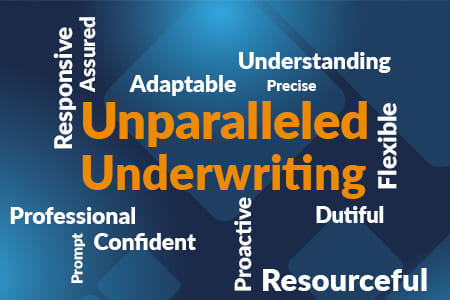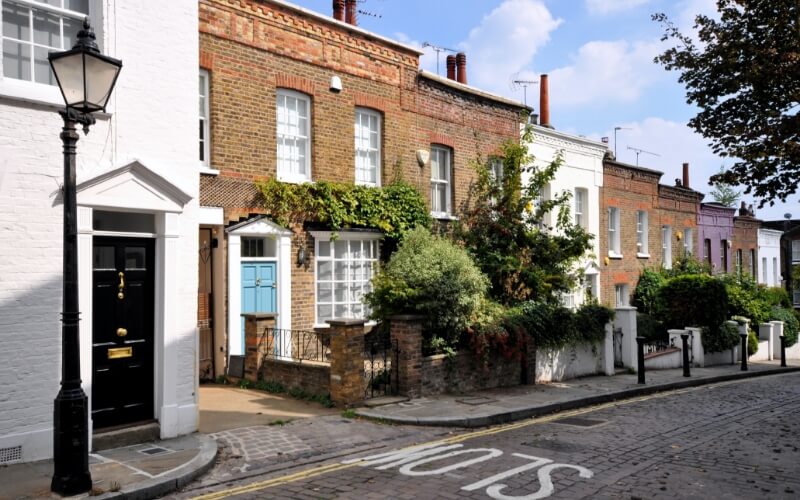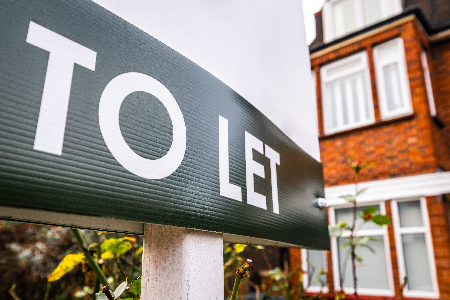A bad credit bridging loan can be the last lifeline when traditional lenders refuse funding based on a bad credit history. They can provide short-term funding to establish a long-term financial solution.
Latest Case Studies
Delivering auction finance quickly for a first-time landlord
Read case studyThe Bridge Fusion route for longer-term development exit
Read case studyBack Up Exit Strategies and Unearthed Arrears in the Legal Stage
Read case studyHelping a Client Recover from Mortgage Arrears on a Buy-to-Let Property
Read case studyA first-time landlord requires careful assessment
Read case studyOvercoming Adverse Credit Issues for a Complicated Refinance Deal
Read case studyUtilising Specialist Finance to Overcome Commercial Conversion Challenges
Read case study
Bridging loan with a bad credit history
- Min. loan amount: £100k
- Max. loan amount: £50m
- Max. LTV: 75%
- Interest rates: variable rate from 0.35% (+BBR), fixed rate from 0.75%
- Charge type (1st/2nd): 1st & 2nd
- Term: 3 – 18 months
- Completion time: Funding can be issued in as little as 3 days.
- Exit fee: POA
- Location of property: England, Wales
Bad Credit Bridging Loan –
All you need to know:
What is a bridging loan?
A bridging loan is a short-term, specialised form of finance designed to support your plans while you organise long term finance, or move forward with other options. Typically, they are used to “bridge the gap” between selling an existing property and buying a new one. Therefore, a bad credit bridging loan is utilised where flexibility and speed are of the essence. Moreover, bridge loans can also be useful for properties bought at auction, refurbishment plans, or commercial investments.
What is bad credit?
Bad credit is a broad term used to define a person who has struggled to pay their bills on time in the past. In the UK, a person’s credit history is monitored and assessed through 3 credit reference agencies: Experian, Equifax, and TransUnion. These 3 agencies use differentiating numerical scales to visualise a credit score. Typically, the closer a score is to zero, the worse the credit rating is.
What can I use a bad credit bridging loan for?
Yes, our bad credit bridging loan can be applied for by those with a range of financial difficulties to their name. This can also include defaults, County Court Judgements (CCJ), and even divorce settlements.
We can also accommodate complex scenarios around the needs of your business, provided we are able to secure our loan against property. Therefore, if you need to capital raise, our bad credit bridging loan may be open to you.
All our applications are assessed on a case-by-case basis and a borrower’s circumstances will be factored into the underwrite – we look at the bigger picture.
What can I use the bad credit bridging loan for?
Our bridging loan for bad credit history can be used for a range of property types, locations, and investment strategies. This includes residential assets, such as houses and flats, through to commercial properties, including offices and pubs.
The funding is available for first-time buyers and portfolio investors. A bad credit bridging loan can be used for a single purchase in a fix-and-flip strategy, as well as a BTL expansion. Regardless of how or why you’re investing, the crucial element will remain your exit strategy.
Also, our loans are available to foreign nationals as well as domestic buyers, so long as they’re investing in England or Wales.
Can I use bridging finance to avoid repossession?
Yes, bridging finance can be used to avoid repossession. Our bad credit bridging finance could allow you to get ahead of the challenges you’re facing and secure your asset. What’s important to note is that you will need to have an exit strategy at the ready for the funding.
Fortunately, there are options available to you. You could sell the property on to cover the funding or sell another asset in your portfolio.
Are second charge bridging loans available to those with a bad credit history?
Yes, second charge funding is available to those with bad credit. Second charge loans are issued to those who already have a 1st charge secured against the property – typically an existing mortgage. They’re commonly used by those looking to utilise the asset in question, without having to re-mortgage, or change terms.
The second charge funding, or unlocked equity, would allow you to move forward with any refurbishment or other investment plans you may have.
If you have a bad credit history, it may prove difficult to raise additional funding quickly with mainstream lenders. Our bespoke loans can adapt flexibly to your circumstances, and provide the financing you need.
How to get a bridging loan with a bad credit history
Bad credit bridging finance providers like us are usually willing to take a bit more risk on board. But to reflect this risk, the interest rates paid are slightly higher.
We still perform credit checks, even for especially bad credit bridging loans. But, we will factor these checks in with your wider profile. On top of your finances, we will examine other assets you own, your exit strategy, business acumen and more.
To get a bad credit bridging loan, you will need to highlight any other forms of capital you have. Additionally, you should provide evidence for how you tried to rectify blips in your credit history. Perhaps there was a missed repayment a few years ago, but since then you have gone out of your way to cover your debts.
What type of credit problems do Market Financial Solutions accept?
We’re open to hearing from property investors with a broad range of credit issues. Among the most common examples includes missed payments – for mortgages, credit cards, or personal loans.
We can also adapt to anything that tends to detrimentally affect a credit rating. This includes setting up new bank accounts regularly, applying for credit often, or even having little to no credit history at all.
When we assess your bad credit bridging loan application, we’ll consider your entire picture.
Can you get a bridging loan with bad credit history?
Specialist lenders like Market Financial Solutions will often issue funding to borrowers with adverse credit and a spotty background. For instance, we may provide bad credit bridging finance if you have missed payments in the past, there have been new accounts frequently, or there is a debt relief order – all of which would dent your credit score.
Do startup business founders with bad credit get funding?
Yes, our bad credit bridging loan can be issued to applicant’s investing via a business, as well as individuals. This includes limited companies, LLPs, SPVs, and more.
We can work with common corporate difficulties that could have an impact on a damaged credit rating or securing finance, such as seasonal cashflows. Also, we can issue funding to a purchasing company that owns property, those who are transferring from an individual to a company, or who are purchasing multiple properties for a wider portfolio.
Why are bridging lenders more open to bad credit history?
Every lender, specialist and mainstream alike, will have its own assessment processes. One bridging lender may deem your circumstances too difficult to accommodate, while others will have no problem working with you.
Generally though, bridging lenders tend to be more open as they offer bespoke products. Mainstream mortgages however often have to adhere to rigid criteria and processes. Bad credit bridging loans from Market Financial Solutions do not follow a tick-box criteria and can be adapted to a range of contexts.
Also, at Market Financial Solutions, we developed our loans specifically with those who struggle on the high street in mind. While we’re happy to hear from all kinds of property investors, much of our business comes from buyers with complicated backgrounds.
Is a credit check necessary?
We will always perform a credit check on you to determine if you are safe to lend to. However, the severity of these checks can vary. Credit checks are usually split into “soft” and “hard” checks.
Soft checks are done to see if you may be suitable for a loan. This is not considered a full search and the results will not appear on your record. However, hard credit checks will examine your entire financial history and will leave a “footprint” on your credit report. Hard checks may follow on from soft checks, where we start progressing a deal.
When is bad credit too bad to get a bridging loan?
This will vary from lender to lender. We will assess your case on invididual merit rather than rejecting you for a certain credit rating. We tend to say yes, rather than no, so do get in touch and we will look into the details of your circumstances.
Does a bridging loan affect your credit score?
As with any form of lending, an adverse credit bridging loan may affect your credit history/record. Where bridge loans are repaid by the end of the agreed term (or sooner) ratings may not be affected. They may even go up. But, where repayment or exit plans go wrong, your credit score could be affected.
Should I try and improve my credit score before applying? How can I improve my credit rating?
Generally, it may be a good idea to try and improve your credit score before applying for any type of financial solution. While we’re happy to work with you if you have bad credit history, better terms and rates may be available for those with a less complicated record.
There are many ways in which you could improve your credit score, with many credit checkers offering advice and pointers on how to do this on their websites. One of the more unusual factors that could improve your credit rating is to make sure you are on the electoral roll!
How much can I borrow with adverse credit?
Generally, with Market Financial Solutions, you can borrow £100k to £50m through a bridging loan despite a bad credit history. The terms will depend on your specific circumstances which will be agreed with you before the loan process starts.
Are adverse credit bridging loans more expensive?
Across all our bridging products, the rates available to you will be varied by a range of factors. Chiefly, this concerns the size of your deposit, the wider economy, and your specific circumstances. But, from a lender’s perspective, issuing funds to someone with a poor credit history is riskier than to someone with a blemish-free record.
As such, the costs associated with the loan may be higher, reflecting the added risk. However, from the outset, your application will an assigned underwriter who will break down your specific costs asap. We are upfront with our fees and terms, meaning you’ll never be hit by any unexpected costs.
Do you need proof of income for a bridging loan?
During the underwrite, we will need certain paperwork to progress, especially during the initial stages. Your underwriter will break down exactly what’s needed to move the deal forward. Throughout, we’ll aim to make the process as simple as possible.
We do ask for full evidence of income and bank statements when looking at a case. However, your loan will be determined by the strength of your investment and exit strategy – especially where the interest is rolled up.
Options for an exit strategy
The terms of a bad credit bridging loan will be heavily dependent on your exit strategy. We would want to understand how you plan to cover the loan, and the timeframe for completion. Often, an exit strategy will involve long-term refinancing, or the selling of an asset to cover the debt.
Should I work with a broker?
The specialist market can be difficult to navigate for borrowers themselves, given the bespoke offering at hand. This could be made even more tricky where poor credit histories are factored in, as there may be limited options available.
As such, it may be worth working with a broker. Brokers will likely have expertise and knowledge on the market and know where to look for the niche product you require.
Also, they’re likely to have built-in relationships with lenders, allowing them to access products and terms that may not be available for direct clients. At Market Financial Solutions, we can work with both direct borrowers and intermediaries.
How to apply?
You can get the application process for your bridging loan despite bad credit history started by contacting us directly. This can be done through multiple routes including email, phone calls, and live chat. Straightaway, we will assign a dedicated underwriter for you and get back to you within four hours so you can move forward quickly.















